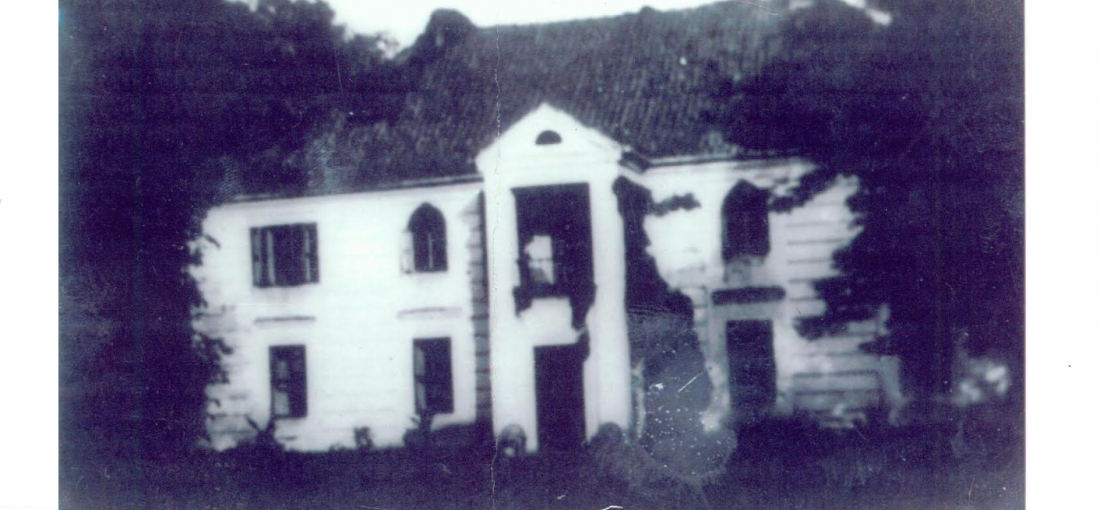
The park was laid out in the mid-18 th century, comprising then the central point of the Górki grange, a noble estate. It was at this time that the first manor house was constructed, which stood on the spot for 50 years. At the end of the 18 th century, the lands of the estate totalled several hundred hectares, and became the property of the family of the last king of Poland, Stanisław August Poniatowski. Its best-known owner was Stanisław Grabowski, the natural-born son of the last king of Poland, who among other posts was Minister of Religious Faiths and Public Enlightenment of the Congress Kingdom.
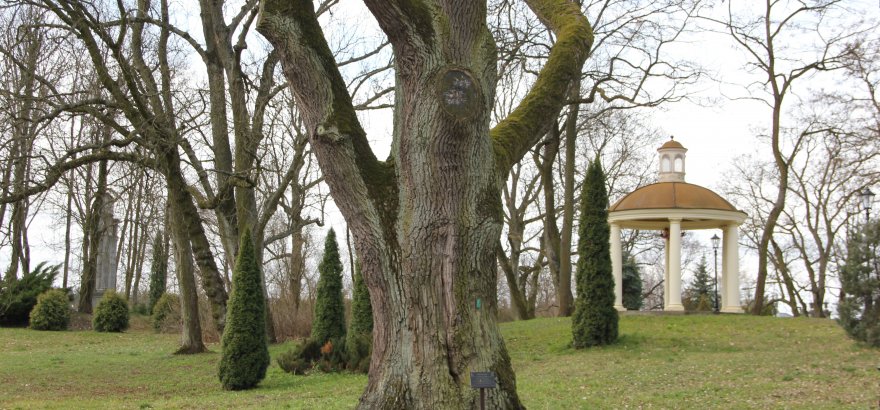
The most devoted of Stanisław Grabowski’s mistresses was the famous “Grabula”, that is Elżbieta Grabkowska. Her contemporaries referred to her as “God’s punishment” for what was considered to be her unbearable temperament, while in reality she was a good and loving mother whose sons were very attached to her.
During this period, the manor house and the park hosted the most remarkable personages of the era, including in particular Tsar Alexander Pavlovich I, the titular king of Poland, and his brother Grand Duke Konstantin Pavlovich, leader of the Polish Armed Forces between 1815-1830. The two oldest oaks in the park were named in their honour: Konstanty (still standing) and Aleksander (uprooted by a windstorm in 2007). To commemorate the visits of Alexander I, who shared ties of friendship with the owner of the place, Stanisław Grabowski, the hotel was named Alexandrinum.
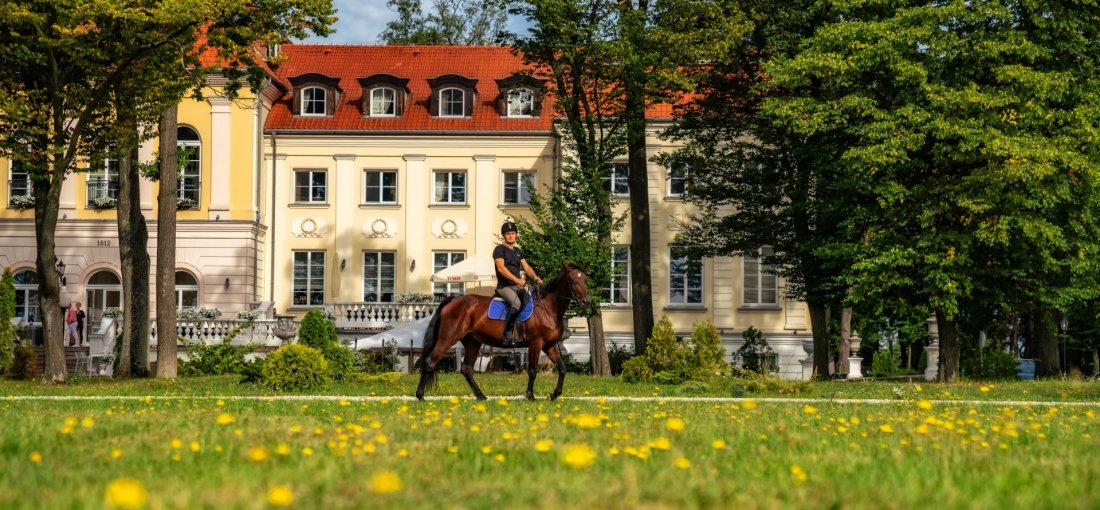
After the death of Stanisław Grabowski, the building changed hands several times.
The manor house in Krubki burned down in August 1944 during the largest tank battle in Polish territory (the 3 rd Guards Tank Corps of the 2 nd Panzer Army defeated the Soviet armies in the fields near Warsaw). The remains of the building were used to build the local school.
It is not known what the home in which Minister Stanisław Grabowski lived originally looked like, but the building was constructed in the late 18 th century, in the late Baroque style.

As a result of agricultural reform, the estate was parcelled out and the park was nationalised. The park itself and the buildings within it slowly decayed. In 1988, the park was restored to private ownership, which unfortunately did not halt further decay. Since 2002, when the estate was purchased by its current owners, there has been a steady process of renovation and reconstruction. In 2005, the Lesser Manor was opened, in 2016 it was time for the Palace, while in 2017 the stables were finished, and in 2018 the Greater Manor (the Residence) was partially completed for use. The renovation process in the park and adjacent buildings is already at an advanced stage, though works will continue for the next several years. When completed, among other things, outbuildings in the north eastern part of the park will be opened.
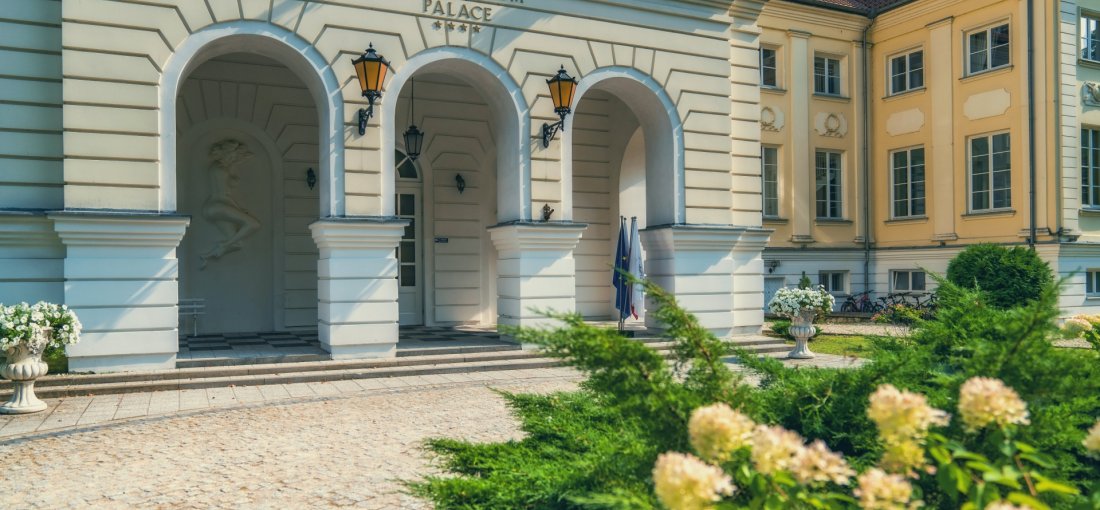
Alexander (Pavlovich Romanov I, the Tsar of Russia and titular King of Poland, was one of the most outstanding Russian leaders and the victor of the defensive ware of 1812. As the only Russian leader to do so, he led his armies into Paris in 1814. It is to his wishes and efforts that we owe the constitution period of the Kingdom of Poland (known as Congress Poland), established during the Congress of Vienna (extant 1815-1831).
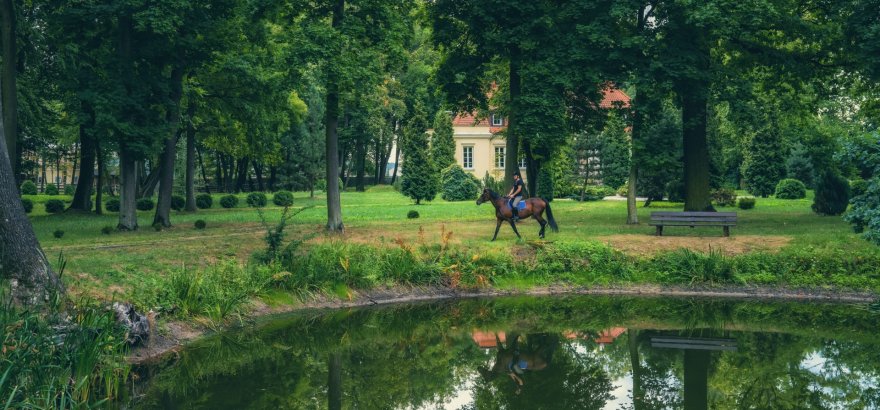
Many Poles were part of his entourage, including one of his closest friends, Prince Adam Jerzy Czartoryski. The sole great love interest of Alexander I was a Polish woman, Maria Naryszkin née Światopełk-Czetwertyńska. The well-known and still performed song Boże coś Polskę was initially dedicated to Alexander I as King of Poland. Among other achievements, Alexander I founded the University of Warsaw in 1816.
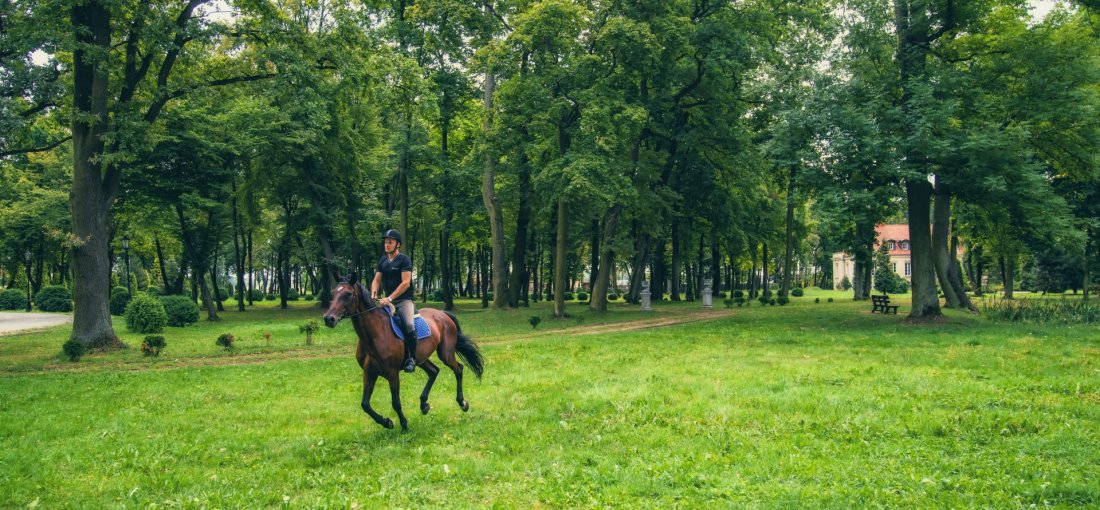
Grand Duke Konstantin Pavlovich, the younger brother of Alexander I and leader of the Polish armed forces in the Congress Kingdom (1815-1830), is remember as a villain in Polish historiography (including in the masterpiece of historical literature Wielki książę by Jarosław Rymkiewicz). His wife and great love was Joanna Grudzińska, a Polish noblewoman who saved his life by successfully blocking attempts by insurrectionists who came to the Belweder palace on the night of 29 November 1830 intending to assassinate the Duke.

During the first Polish-Russian battles of the November Uprising, Konstantin Pavlovich demonstrated sympathy towards Poland while a member of the General Staff of the Russian Armed Forces, among other things by loudly whistling Dąbrowski’s Mazurek, which later became the national anthem of Poland. The Grand Duke was a frequent visitor to Górki Park. A 500-year-old oak which still stands along the main pathway of the park was named after him (Konstanty). The Duke died in 1831. Several months later, his wife, Joanna Grudzińska, passed away in St. Petersburg.
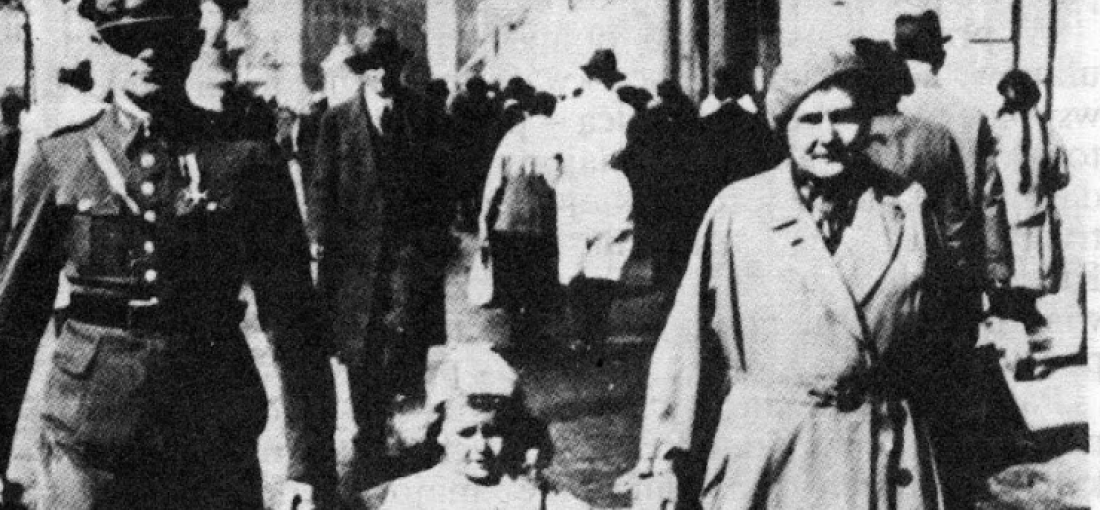
On 28 September 1939, Major Dobrzański arrived at the estate of the Arkuszewska sisters in Krubki Górki. On the very same day, Hubal and his unit, on their way to defend Warsaw, found out that the city had fallen.

“One after another, the men turned their eyes towards the same point, their leader standing with his back to them (…) Major Dobrzański turned around and said (…) “Soldiers! Warsaw has fallen!” (...), he saw in their eyes a look which he had never seen before; he felt that he was losing their confidence as a leader, and his first reaction to the sensation of powerlessness which he felt was visceral rage … “Let the weak men among you go to hell!” he said, and felt the men regaining faith. But it was fleeting … “Not all is lost. In France, the fighting continues. I haven’t taken off my uniform since I was 16 years old. And I won’t take it off now. You do as you please.”
(Source: Szlakiem Henryka Dobrzańskiego “Hubala”, Henryk Sobierajski, published by PTTK “Kraj” Warsaw 1990. in Melchior Wańkowicz “Hubalczycy”)

Major Henryk Dobrzański was a soldier of the Polish Second Republic who conducted guerrilla warfare against the occupying Germans after the successful completion of the invasion in the September Campaign. He arrived in Krubki-Górki on 28 September 1939, at the head of the remains of the 110 th and 107 th Reserve Cavalry Regiments. They were making their way to Warsaw, which on that very day had capitulated. The scene of the Major’s arrival at the park has been dramatized in the film “Hubal”, in which the title role was played by one of the greatest Polish actors, Ryszard Filipski. The choice of Krubki was not random; Major Dobrzański had enjoyed a long acquaintance with the then-owner of the estate, Teresa Arkuszewska.
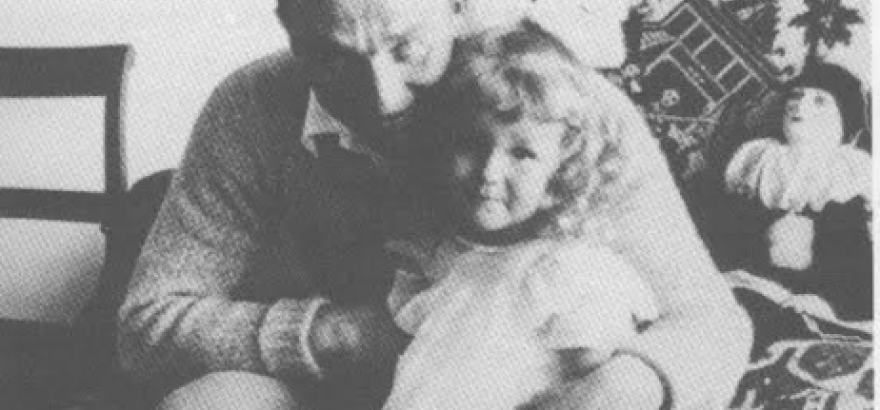
Major Henryk Dobrzański died in battle with the Germans on 30 April 1940 near Anielin. To this day it is not known where he is buried.
At the urging of the inhabitants of Krubki-Górki, the President of the Republic of Poland posthumously awarded Major Henryk Dobrzański Hubal the Grand Cross of the Order of Polonia Restituta.
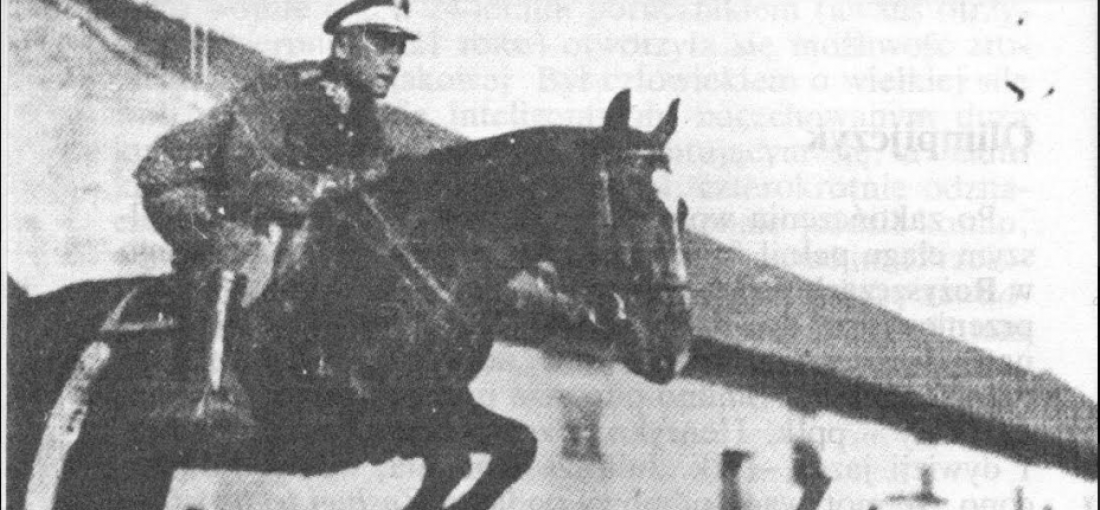
Every year since 2002, at the turn of September and October, patriotic celebrations dedicated to the memory of Major Henryk Dobrzański are held. Thanks to the efforts of Hubal’s grandson, Henryk Sobierajski, and of the owner of the building, Witold Modzelewski, the Henryk Dobrzański USQUE ad FINEM order has been established to award crosses for outstanding public service, artistic endeavours, publications or sporting achievements.
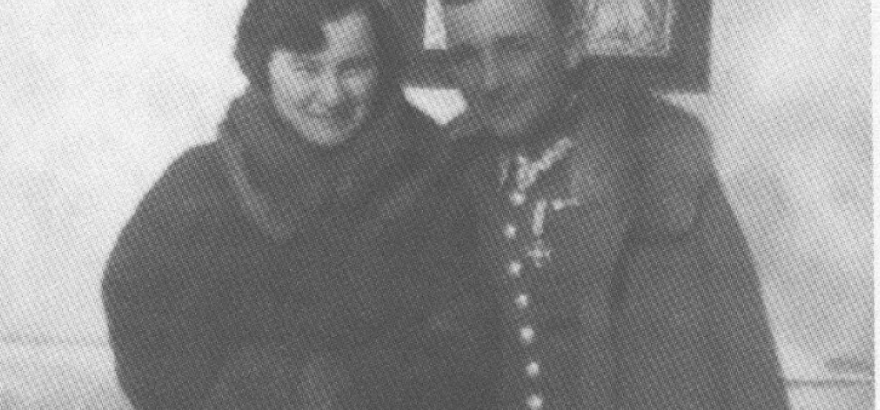
Recipients of the USQUE AD FINEM cross include the outstanding academicians, Professors Witold Kieżun and Irena Szewińska (posthumous).
Reception